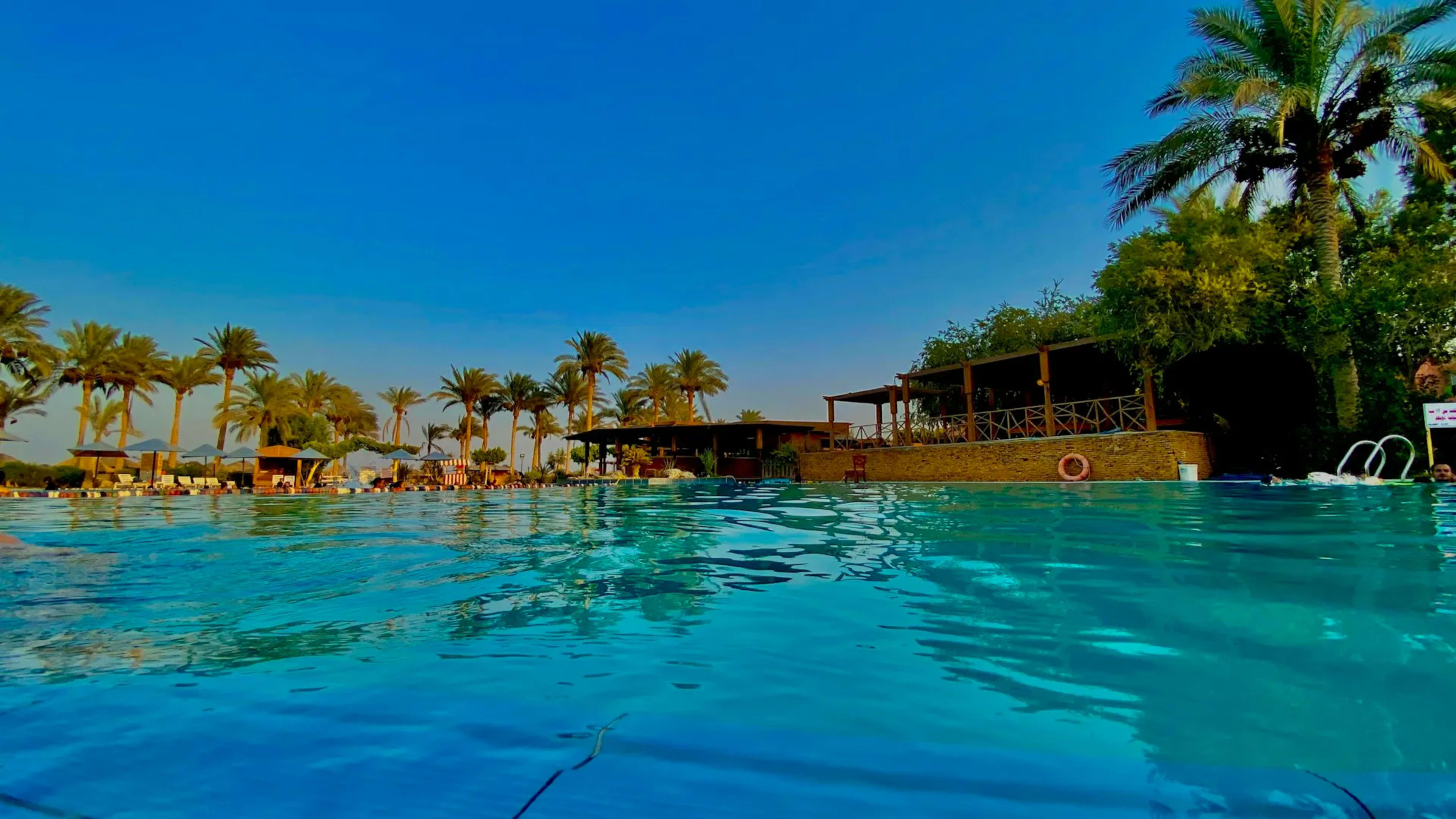Location & Transportation
The port area in Suez is split between Port Ibrahim and Port Tewfik. Port Ibrahim mainly handles general cargo and passenger vessels, while Port Tewfik—with its facilities also accommodating tankers and livestock vessels—welcomes passenger ships and those transiting the Suez Canal. Taxis are readily available, making it simple to get around or head to your next destination.
For travelers looking to fly in or out, the nearest major airport is Cairo International Airport, located about 95 km away. A taxi or pre-arranged transfer will take you there in roughly one and a half hours.
Nearby Lodging
While Suez is primarily a transit port, there are a few modest hotels and guesthouses nearby if you prefer to rest after your excursion. Many cruise passengers, however, choose to enjoy a day excursion and return to their ship, especially if Cairo is also on the itinerary.
Sightseeing
Suez itself is full of historical charm and local color. Walking along the Corniche offers a wonderful view of huge ships lining up to transit the Canal. As you explore, consider these highlights:
- Stroll along the waterfront to watch the activity on the Canal.
- Visit the beautiful white stone Hamza Mosque, which is especially striking when illuminated at night.
- Explore the Convent of the Good Chapel Sisters, a Catholic establishment dating back to the 19th century and the only Christian historical site in the area.
- Take in the scenic views of the Ataga Hills (Jebel Ataga), which provide a glimpse of the surrounding Sinai and the distant Red Sea.
Tours & Excursions
Suez’s strategic position means that all of Egypt’s major attractions are within reach. Many cruises include excursions that offer a taste of Egypt’s rich heritage:
- A full-day tour from Suez to Cairo lasts about an hour and a half. For first-time visitors, a trip to the Pyramids at Giza accompanied by a visit to the Museum of Antiquities is a real highlight.
- Alternatively, consider the “Cairo and Beyond” excursion, which takes you to the tombs at Saqqara and Memphis (home to an impressive statue of Ramses II), and includes a stop at the bustling Khan el-Khalili Bazaar.
- Many tour companies provide added security with armed escorts, so you can explore with peace of mind.
- For more options, you can check out third-party excursions on Viator.
Remember to keep your cell phone handy, and always note your ship’s contact in case the excursion runs behind schedule.
It‘s a good idea to compare shore excursion costs between what your cruise line offers and options like Viator and GetYourGuide. They often provide lower prices and include customer reviews and ratings to help you choose the best option. They may also offer more more flexible cancellation or rescheduling policies than those available through your cruise line. However, while booking independently might give you more variety and potentially better rates, be mindful of your schedule - cruise line excursions are typically coordinated to match your ship‘s schedule with guaranteed pick-up and drop-off times.
There is also a great resource for finding local guides at Tours by Locals. Tours by Locals connects you with local guides who can help you plan a private personal tour, guide you, and get you back to your ship on time. You can also check out Rome2Rio for local transportation options. It is a great resource for finding how to get from one place to another, including public transportation, taxis, ferries, and more.
Shopping
Suez isn’t known as a shopping haven, but if you’re in the mood to browse, you might find small local shops selling traditional Egyptian goods and handicrafts. If shopping is a priority, consider scheduling some time during your stay in Cairo, which is famous for its vibrant bazaars like Khan el-Khalili.
Dining
Dining in Suez is straightforward and flavorful. Restaurants here may appear simple but often offer menus that surpass expectations. Typical dishes include:
- Foul (hearty bean dishes)
- Roast pigeon and kebabs
- Creamy hummus and other chickpea-based specialties
- Fresh seafood caught locally and prepared with Mediterranean flair
Although Egypt is a predominantly Muslim country, you’ll find alcohol available at many café-style bars and well-regarded restaurants. This is a perfect opportunity to savor authentic Egyptian cuisine at reasonable prices.
Culture & Local Events
Visiting Suez is a dive into Egypt’s storied past and vibrant culture. Here are some cultural tips and local insights:
- The local currency is the Egyptian Pound (EGP). While many tourist-oriented businesses accept credit cards, it’s wise to have some cash on you.
- Arabic is the primary language. In tourist areas, you’ll often hear English spoken as well.
- Business hours tend to start mid-morning and run until the early evening, but take note that many establishments may adjust their hours during prayer times or on Fridays.
- Tipping is customary in Egypt—typically around 10% in restaurants.
- While Suez itself is quieter in terms of festivals, the greater region—including Cairo—hosts a variety of events throughout the year. If your timing coincides with national celebrations like Revolution Day on July 23 or local cultural festivals during Ramadan, you might catch a festive atmosphere and live local music or traditional performances.
Safety & Awareness
- Always keep a close eye on your belongings, as crowded areas can attract pickpockets.
- In case of emergency, dial 122 for local assistance.
- Make sure to drink plenty of water and protect yourself from the sun while exploring. Lightweight clothing, a hat, and sunscreen go a long way in the warm, dry Egyptian climate.
